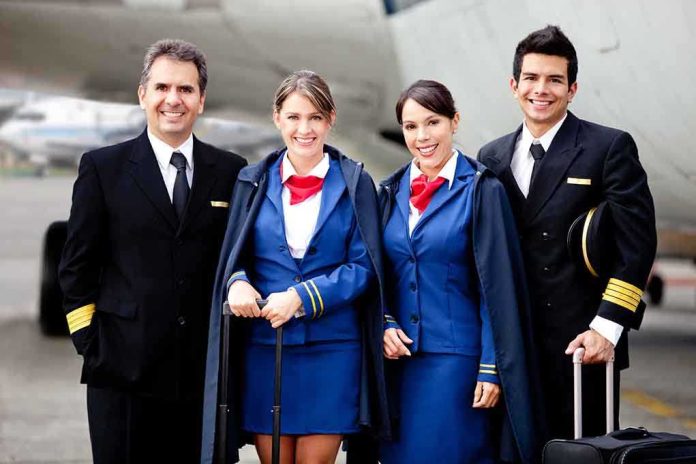
An Ibom Air passenger’s assault on a flight attendant raises urgent concerns about airline safety and passenger conduct.
Story Snapshot
- A female passenger on an Ibom Air flight assaulted a flight attendant, sparking public outrage.
- The incident highlights ongoing issues with passenger misconduct on flights.
- Social media played a significant role in amplifying the incident.
- Legal action has been taken against the passenger, underscoring the seriousness of the offense.
Passenger Misconduct and Legal Ramifications
On August 11, 2025, a female passenger aboard an Ibom Air flight from Uyo to Lagos was involved in a violent altercation with airline staff. The confrontation escalated when the passenger slapped a flight attendant, prompting immediate intervention by airport security. The entire incident was captured on video, quickly going viral on social media and drawing widespread condemnation. Ibom Air has confirmed the incident and initiated legal proceedings against the passenger, emphasizing its commitment to staff safety.
The rapid spread of the incident via social media platforms such as Instagram has intensified the public debate about passenger behavior and the authority of airline staff. This case is one of many recent incidents that underscore the challenges faced by airlines in maintaining order and safety aboard flights. As airlines adopt stricter policies to address these issues, the role of social media in shaping public perception and institutional response cannot be overstated.
Airline Policies and Passenger Rights
Incidents like this highlight the delicate balance between enforcing airline policies and respecting passenger rights. Airlines are mandated to ensure the safety and well-being of their crew and passengers, which often requires decisive action during in-flight disturbances. The legal authority granted to flight attendants during flights is crucial for maintaining order, yet it also raises questions about the proportionality of responses to passenger misconduct. As public scrutiny increases, airlines may need to review and possibly strengthen their training programs for handling such situations.
In light of this event, there is a possibility that airlines will implement more rigorous training for their staff to better manage passenger behavior. Additionally, this case may catalyze discussions about revising regulatory frameworks governing passenger conduct and airline authority. While the immediate focus remains on the legal proceedings against the passenger, the broader implications for airline safety protocols and passenger rights are significant.
The Role of Social Media in Amplifying Incidents
The power of social media to amplify incidents of passenger misconduct cannot be ignored. The viral nature of the video from the Ibom Air flight has fueled discussions far beyond the immediate parties involved, impacting public opinion and potentially influencing regulatory actions. As these platforms continue to serve as arenas for public debate, they also pose challenges in terms of ensuring accurate and fair representation of events.
While social media can serve as a tool for transparency and accountability, it also risks sensationalizing incidents without providing full context. Therefore, it is crucial for airlines and regulatory bodies to engage proactively with these platforms to address misinformation and educate the public about proper in-flight etiquette and the importance of compliance with crew instructions.
Sources:
Watch: 3 Indian-Origin Women Kicked Off US Flight After Argument with Flight Attendant
American Airlines Passenger Has Meltdown After Vaping in Airplane Bathroom






